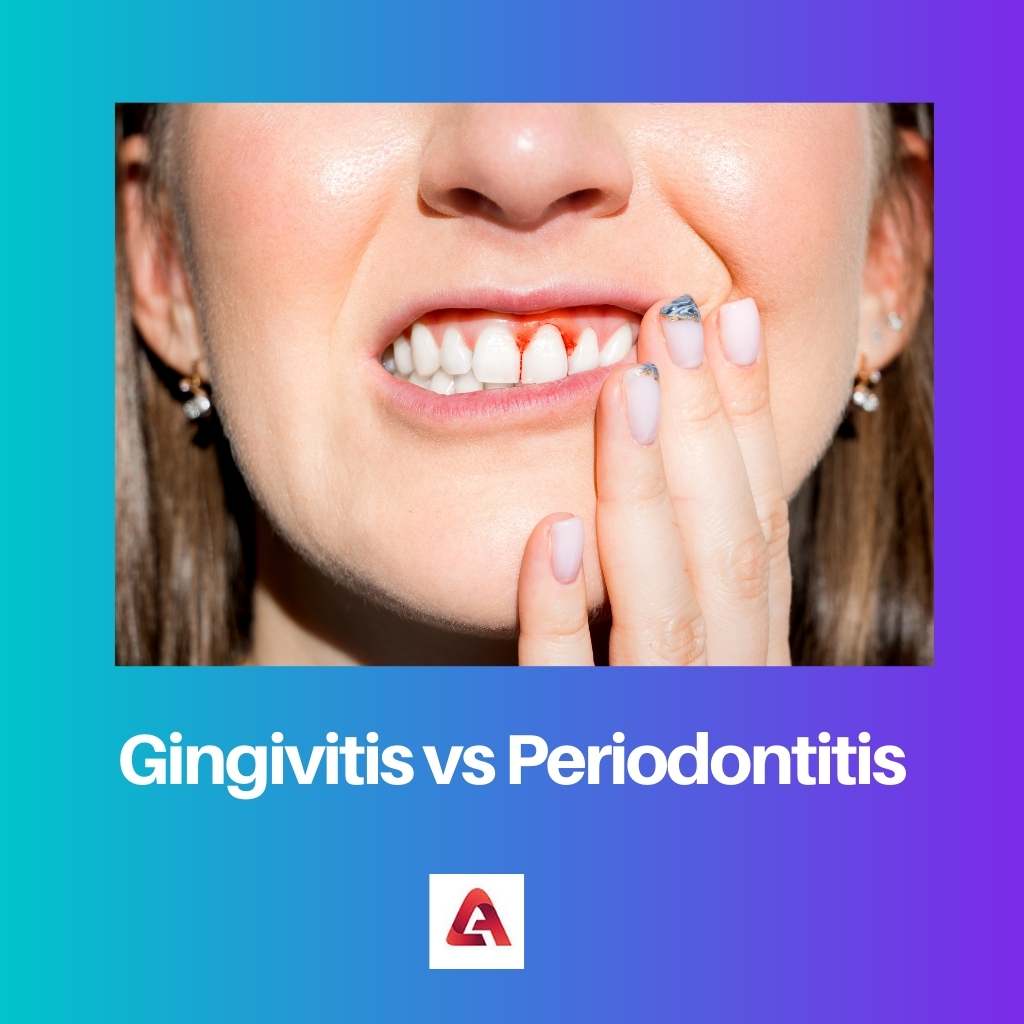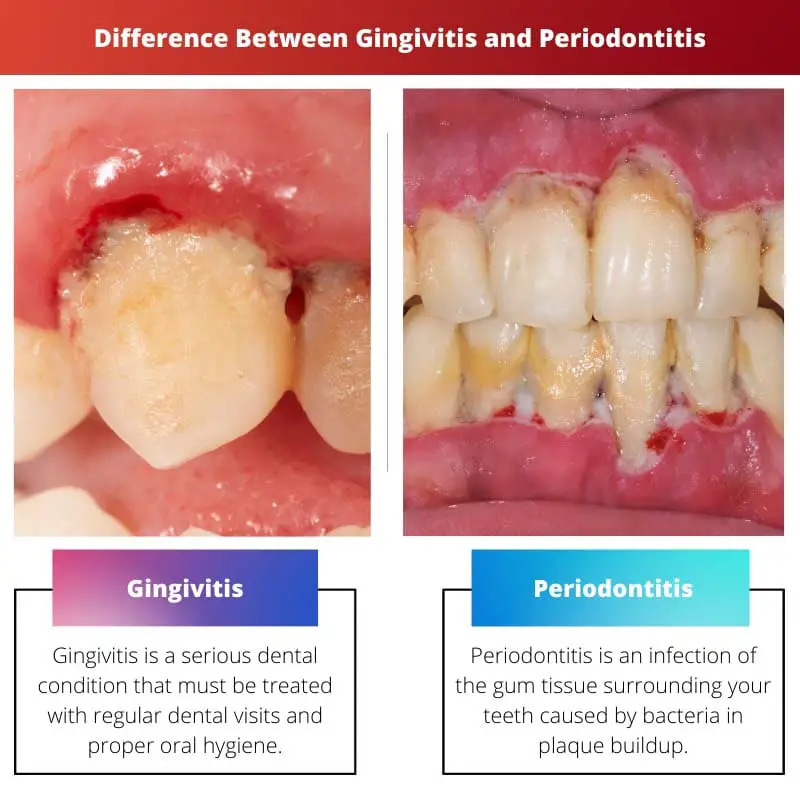Gingivitis and periodontitis are forms of gum disease that affect a person’s oral health. Periodontitis is the next stage of gum disease caused by untreated gingivitis.
Gingivitis is the problem in gum. It leads to swollen gum and bleeding easily. It is important to seek treatment before the condition progresses into periodontitis.
Key Takeaways
- Gingivitis presents as gum inflammation and bleeding, whereas periodontitis involves bone and tissue loss around teeth.
- Gingivitis is reversible with proper oral hygiene, while periodontitis can cause permanent damage and tooth loss.
- Periodontitis develops from untreated gingivitis, making it crucial to address gingivitis early to prevent progression.
Gingivitis vs Periodontitis
Gingivitis is a gum disease that can cause redness, and swelling in the gums. It can be treated with proper treatment and hygienic measures. Periodontitis is an incurable gum disease that occurs when gingivitis is not treated at its early stage. It can cause teeth removal due to its severity.

Gingivitis is a serious dental condition that must be treated with regular dental visits and proper oral hygiene. Gingivitis is the inflammation of the gums, which causes them to swell and bleed easily.
The best way to prevent the development of periodontal diseases is by keeping up with your daily oral hygiene routine.
Periodontitis is an infection of the gum tissue surrounding your teeth caused by bacteria in plaque buildup.
Periodontitis is a general term for inflammatory diseases of the supporting tissues of teeth. It results in tooth loss, pain, and other problems.
Comparison Table
| Parameters Of Comparison | Gingivitis | Periodontitis |
|---|---|---|
| Pain | Low | High |
| Breath | Normal | Unpleasant |
| Indication | Gum Inflammation | Tooth loss |
| Cure | Yes | No |
| Teenagers | Occurs | Rarely occurs |
| Tooth | Firm | Loss |
What is Gingivitis?
Gingivitis is a minor gum disease that can lead to more serious issues. It appears as an inflammation of the gums and is characterized by bleeding, redness, and swelling.
The condition can be treated with proper oral hygiene, but if left untreated, it can cause serious health problems such as tissue damage and tooth loss.
Gingivitis is a common inflammatory disease of the gums. If you suffer from this, you may find it difficult to floss and brush effectively. Gingivitis is a form of periodontal disease that affects your gums and your teeth.
If left untreated, the infection can spread to other parts of the body through the bloodstream. Gingivitis can be caused by various factors such as genetics, smoking, stress, and poor oral hygiene.
The first sign of gingivitis is redness and swelling of the gum tissue surrounding your teeth. This is followed by bleeding while brushing or flossing and bad breath.
You will also experience sensitivity in your teeth when consuming hot or cold foods and drinks.
Untreated gingivitis can lead to periodontitis (a more advanced form of gum disease) and eventual tooth loss. While periodontal diseases are most prevalent in adults aged 35-44, they are also frequently found in children.
What is Periodontitis?
Periodontitis is an inflammatory disease that affects the gums and bones that support the teeth. It is an infection, but it cannot be spread like other infections (infections caused by viruses or bacteria).
The main symptoms include redness, swelling of the gums, tenderness, bleeding while brushing your teeth, bad breath, and loose teeth.
Periodontitis can result from poor oral hygiene if you don’t take care of your teeth at least once a day.
There are ways to treat this condition before it gets worse. Poor oral hygiene, tobacco use, certain medications, genetics, diabetes, and other factors can cause periodontitis.
However, periodontal disease is preventable or reversible with proper care.
To keep your gums healthy, it’s important to practice good oral hygiene habits.
Brush at least twice a day using fluoride toothpaste and floss at least once daily to remove plaque from between the teeth that your toothbrush cannot reach.
This article will help you understand what causes periodontitis and how to prevent it.
The first step in preventing periodontitis is brushing and flossing regularly to remove plaque from around your teeth.
If you are prone to dental cavities, make sure you brush twice a day with fluoride toothpaste and use dental floss daily.
Main Differences Between Gingivitis and Periodontitis
- Gingivitis can occur in teenagers, but periodontitis is rare.
- Pain symbolizes that Gingivitis has increased to Periodontitis.
- The tooth is firm in Gingivitis, but the tooth is loose in Periodontitis.
- Breath can be unpleasant when gingivitis turns into Periodontitis.
- Gum inflammation is Gingivitis, but Tooth loss is Periodontitis.
- Gingivitis is reversible and has a cure, but Periodontitis is not reversible.
